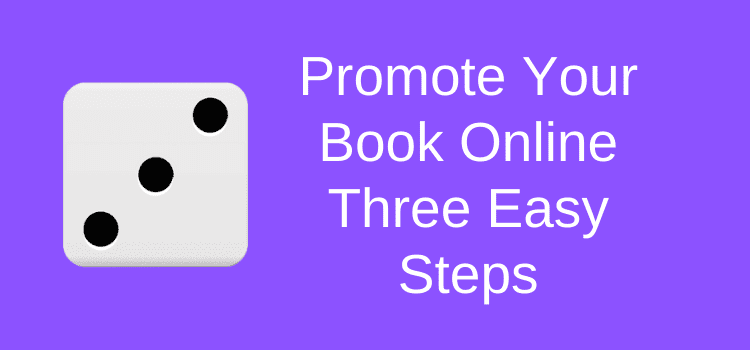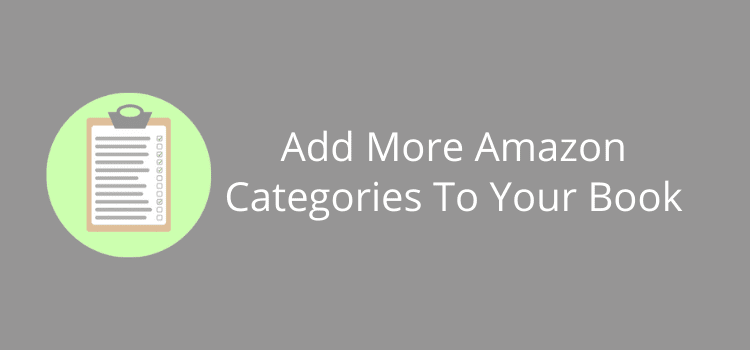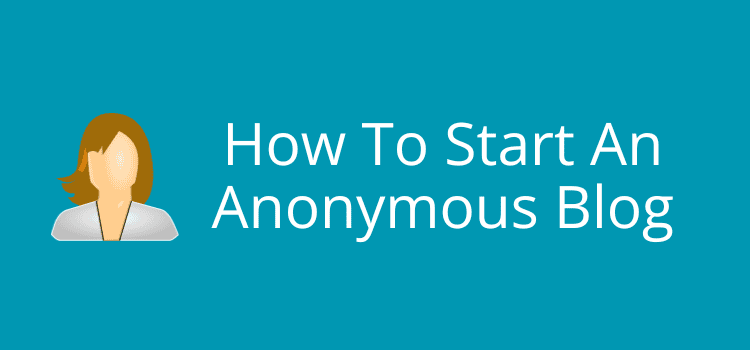
You finished writing and publishing your book. Now you need to learn how to market a book online to sell it.
If you are indie publishing, you only need three base elements to continue building your online book promotion.
In short, these three elements are a blog, social media, and effective online promotion.
With these three pillars, you can attract attention and increase interaction.
How to market a book online effectively
You can get the message out about your books without spending countless hours each day on book promotion.
The key to effective online book marketing is to use your time efficiently and make each of the three pillars work for you, not vice versa.
Writing your next book is far more important than spending hours each day on Facebook or Twitter.
Let’s look at how you can balance your writing time and the time you spend encouraging people to buy your book.

Nothing works better as a marketing strategy to sell books than having readers find your blog via Google, Bing, or Yahoo search.
It is by far the most powerful tool you have at your disposal. Always work on making your blog even easier to find.
Here are some steps you can take to gain more search traffic.
1. Write a new blog post once a week to keep your blog fresh
Fresh content is key, as Google especially uses this as a ranking factor. Fresh content also helps you keep your blog readers and have them return regularly.
A good tip is to publish new articles on a schedule so your blog readers learn to expect new posts.
Think about doing this on perhaps Tuesdays or Wednesdays when people have more time to read. Avoid Fridays and weekends because people are too busy.
You could also consider writing a guest post on another book or author blog.
2. Use a little SEO to get more search traffic to your blog
SEO (Search Engine Optimisation) is not difficult at all.
Take the time to learn a few basics, such as using keywords, adding alt tags to images, and writing meaningful descriptions.
Don’t worry; you can learn these basics by reading SEO articles.
You’ll find 1,000s with a Google Search.
3. Update your old blog posts
Your old blog posts are a potential goldmine for marketing your book online.
Instead of spending hours writing new articles, look back at your existing posts, and find ones that can be refreshed, extended, and updated.
Perhaps you have news about a recent press release for your book or recent book signings. Don’t forget to add a little SEO that you have learned.
You can update the post, which Google will hopefully see and help your ranking. But your original publishing date will remain unless your blog has an updated date function.
Or, you can publish it again as a new article. This helps you post fresh content and saves you time writing a whole new post.
4. Encourage comments
The easiest way to connect with your readers is to encourage comments.
The best way to achieve this is to add a call to action to your posts.
Even simply ending a post with a question can gain more comments.
More importantly, it connects not only you with your potential book buyers but your commenters with each other.
This is the closest you can get online to word-of-mouth marketing.
5. Write Evergreen blog articles
The best way to keep your blog relevant, informative, and fresh is to write evergreen blog articles that will not date.
Evergreen posts are highly suited to book marketing non-fiction and well as fiction books.
They will work at promoting your books and your author brand for years to come.

When you market a book online, social media can eat away at your time.
Don’t fall into the trap of thinking you need to invest hours each day on Facebook and Twitter.
Social media is now a vital means to promote any product or service. But it needs to be used with book promotion in mind and not as a chat channel.
Never mix business and pleasure.
If you are using your personal social media accounts to market and promote your book sales, you should think about setting up new professional accounts.
2. Use a Facebook Page, add content, and get Likes
A Facebook Page is much more useful and productive than a personal profile.
It is, by definition, a marketing page. You can add a shop and services and many other apps and functions that are highly promotional.
If your blog is continually refreshed, you will have plenty of new content to add to your Facebook Page. This is why your blog is your number one book marketing tool.
However, without Likes, very few people will go to your Facebook Page.
Gaining organic Likes is a very slow process, so I recommend using Facebook Ads to help you get more Likes.
Sure, it costs a little bit of money, but it is money well spent, as people who Like pages on Facebook rarely leave by Unliking a page.
On average, one Like will cost between $0.10 and $0.15.
You can use a small budget of, say, $5.00 a day and only run your Like promotion on days and times that work best.
In my experience, Mondays and Tuesdays, in the afternoon and evening, are the best days and times.
Again, Weekends and Fridays are bad days, so don’t waste your money on these days, as you will likely get very few Likes for your money.
On your Facebook Ads dashboard, you can pause your Likes campaign any time, which helps you keep your spending in check.
Don’t rush into it too quickly, though.
Gaining 40-50 Likes per week for around $5.00 is very good value and inexpensive.
In time you will have a Facebook Page working for you with minimal effort on your part.
Add content regularly, build up your Likes, and let Facebook work for you.
3. Twitter is a must, but don’t waste a lot of time
I have used Twitter since 2009, so I can say I have been around the Twitter block for a long time.
My advice is to use Twitter as a means to gain traffic to your blog. (Yes, your blog keeps coming back as being your most useful and productive asset.)
Share your blog posts on Twitter at regular intervals, and they will bring people to your blog.
If you are keen and have a little technical ability, there are many ways you can automate your blog to share your articles and book promotion pages on social media.
Spend half an hour a day at most on Twitter and follow a few new users who might fit as potential readers or book buyers.
You can search with a hashtag to do this. Look for #amreading or #booklover, or you can do a user search for people who might have an avid reader in their profile.
If you want to gain traction on Twitter, you need to manage your account, including smart unfollowing.
You can read this article for more information.
How To Grow Your Twitter Account To Promote Your Books
4. Social media services that don’t take much effort yet work
Sharing your blog posts on social media always helps, but it is not only Facebook and Twitter.
I get a lot of blog traffic from others.
Consider using the following social media platforms to share your blog posts and book promotion pages.
None of them needs any other interaction other than to share your content, so you can easily post with your phone. But all of them deliver regular traffic to my blogs.
Pinterest
Flipboard
LinkedIn
Step 3: How to market your book by going much wider

Your blog and social media will have limited reach, no matter how many Likes, followers, friends, and subscribers you have.
When you consider what book promotion to use, always consider how far it can extend your reach.
In other words, will it spread the word about your books further than your online footprint?
Will it help attract people who might be interested in reading your book on Amazon?
If the answer is yes, then it is worth considering. Here are some ideas for you.
1. What can you do to market your books?
There are many ways to promote books, but the best ones don’t take up too much of your time.
You can find many ways to promote your book in ten minutes. Before you spend a cent, try different tactics to get the message out about your published book.
Commenting on blogs is one of the quickest and easiest, as is publishing your blog posts on Medium.
2. Look for services that can help you with book promotion
There are many book promotion sites online, both free and paid to help you market your book online.
Your choice will depend on your budget, your books, your genre, or if you are perhaps promoting free ebooks.
However, in making your choice make sure that your book or books will be promoted to an audience much larger than your own and that the service has a track record of good customer service.
You also need to decide if you want social media, on-site or email marketing, and promotion.
Another consideration is whether you would like a service specializing in book launches or gaining book reviews.
3. Yes, free book promotion is great, but getting value for money is better
There are hundreds of free book promotion sites and services.
But many of them are using book promotion, especially free ebooks, as a lure to make Amazon Associates income.
In other words, by attracting someone to click on your book, the promoter gets an Amazon cookie, which helps the promoter gain income from what the visitor buys from Amazon over the next 24-48 hours.
Therefore, be careful when choosing a free book promotion service.
Summary
Concentrate on the three steps outlined above to market your book online.
You will save yourself a lot of valuable time and increase the effectiveness of your book promotion.
Clearly, your blog is your biggest book marketing asset.
Make sure your blog is updated and up-to-date; if not, it is time to do a blog checkup and audit to get your blog working better.
Once your blog works well, it will feed your social media and book promotion.
Depending on which blogging platform you use, you might also be able to build your email list.
Offering a free ebook from your blog in exchange for an email address is a great promotional tool.
Keep your social media time to a minimum, but continue growing your reach and leverage with Facebook Likes and Twitter followers.
Use other sharing services, especially ones where you can share your book trailer and highlight your book cover.
Doing all this will give you a solid base to promote and market your book online.
But most important of all is not to waste your time because you need to write your next book.
Related reading: How A Copywriter Would Plan, Prepare And Write A Book Description




You mention becoming a guest blogger. But how do you go about doing that?
Do a search on our site for Guest Blogging or Guest Post. You will find lots of articles to help you.
You mentioned book blog, if I set up a blog for my book does it mean I will have to set up another blog whenever I have a second book?
Thank you.
No, Fred. You can use one blog to promote many titles.
Thanks for this up-to-date and helpful information. :) — Suzanne
Thanks for great advice! Best wishes.